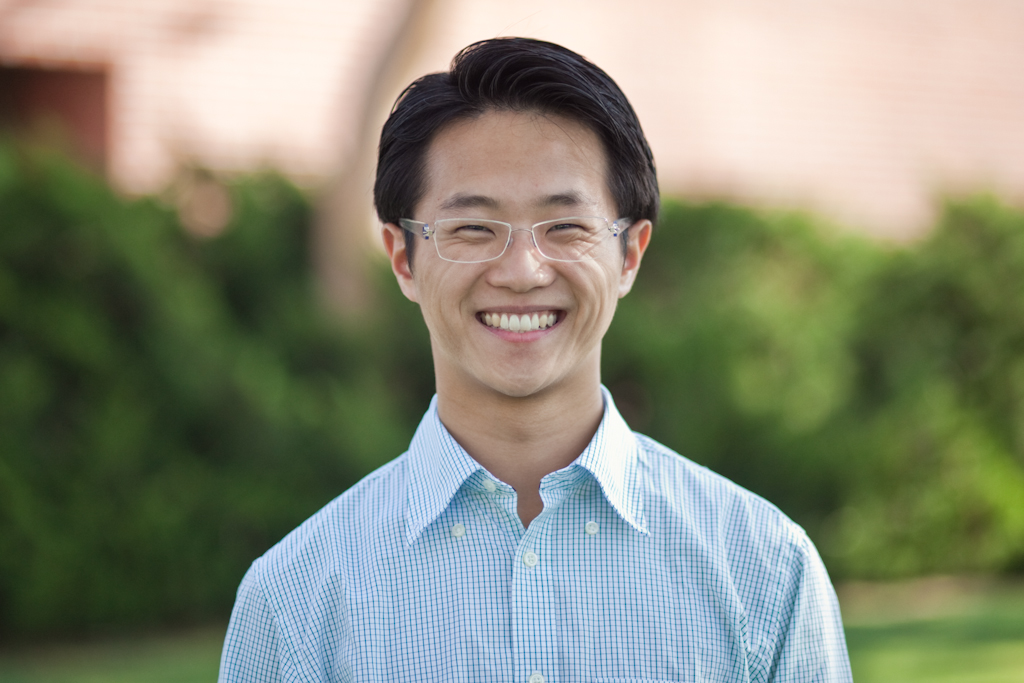
Despite his busy schedule, Gabriel Choo keeps the Sabbath regularly. | Job Ang/THE CHIMES
Meet Gabriel Choo, a junior Torrey student who double majors in business and philosophy while holding a part-time job. I sat down with him to ask about his experience with sabbathing. He observes the Sabbath weekly, which was fascinating, since it seems like very few college students manage to keep a Sabbath regularly.
Sabbathing is an important, yet often-neglected practice. God invites us to experience true rest by fixing our attention on him and communing with him. He wants us to thrive, and in order to best do that, he created this time where he can recharge us. The interview that follows was done to understand the importance of sabbathing through learning about Choo’s experience.
Q: When you were young, did you observe the Sabbath?
A: Growing up, I didn’t have a very big conception of what the Sabbath was. Everybody in my church would take a Sabbath, though, but I didn’t know what it meant. In my mind, the Sabbath was a time where you didn’t watch movies, didn’t play games and in general, didn’t do anything fun. I thought of it in a negative sense. I remember waiting until sundown when I could have fun again. There’s definitely a legalistic way to keep the Sabbath, and that’s what I don’t think is right. Legalism with the Sabbath can ruin relationships with others as well as your relationship with God.
Q: What’s the wrong way to approach the Sabbath?
A: The wrong way is to treat it negatively. The Sabbath is not a list of don’ts, it is a single do: do rest. When you put it positively, then it helps you determine what is good. But when you’re legalistic about it, it’s all about the rules. For example, since my family wouldn’t watch TV on the Sabbath, I’d binge out on “Veggie Tales” [laughs], and watch it over and over.
Q: And what is the right way?
A: Finding out the purpose of what the Sabbath is. If you know the purpose, it determines everything you do to get to that purpose. The purpose of sabbathing is to commune with God in a way that’s different from what you do during the rest of the week. Humans are such that we need cycles and we need rhythms. We need times of work and times of rest. Even biological sleep is built in; we need it. I think the Sabbath is part of what it means to live in Christ. If there are not times of rest in a person’s life, I don’t think they can fully serve God right. Rest takes intentionality. It takes a certain will to say, “I’m not going to think about all the hundreds of things I need to do right now. I’m going to spend this time actually resting physically, mentally and emotionally from the week and devote it to God.”
Q: How does your time with God differ between the six days and the Sabbath?
A: On the Sabbath, I say “no” to any sort of normal work. I spend time at church in community and also in silence and solitude. I get the opportunity to experience space and spend time with God in a meditative, quiet, extended form, which is harder to do during the week. And of course, I enjoy getting more sleep on the Sabbath, too!
Q: What does a normal Sabbath look like for you?
A: Well … OK, confession: I’m not perfect in keeping the Sabbath. But here’s how it goes. Friday evening comes around, I stop working and start resting. Ideally, you prepare for the Sabbath. I don’t always keep it perfectly, but I usually rest from my work and begin the process of winding down — not for sleeping, but for entering the way of rest. There is a way that you could mindlessly Facebook the time away in which you don’t actually rest. This is a time where you have the intention of setting time aside for the goal of finding peace with God in your soul.
Then Saturday morning, I go to church. It’s the equivalent of a Sunday for most. Afterward, we usually have a potluck at the church. Lately, after lunch, I enjoy going home to read my Bible, pray and meditate. Then when the sun goes down, the Sabbath is over. It’s like this 24-hour sanctuary that God gives. Not everybody can go to a cathedral, but everybody has a cathedral in time if they use the Sabbath correctly. It’s this space that God ordains in the Bible.
Q: What would you say to those who think they are too busy to observe the Sabbath?
A: Think of it as a discipline of fasting. When you fast from an activity, it regenerates you more than if you were working through the whole way. If you keep an engine running continuously and don’t take stops to check it up and let it rest and cool down, it’s going to overheat and get messed up. It’s the same thing with sleep. If you deny the body’s need for rest, things are going to catch up with you.
Q: Why do you think it’s so hard for us to observe the Sabbath these days?
A: Because we’re afraid. We’re afraid that we won’t get things done, we’re afraid to trust that God has our back. I, personally, am afraid that my destiny will somehow drop off the face of the earth if I don’t stay on top of things every single second. But I think Sabbath is coming to acknowledge that I’m a part of something larger than just my work. God made me for more than being a machine. Sabbath is a time to acknowledge that I’m not in control and that the world will keep going if I step back and don’t do anything for 24 hours.







